For his English language debut, Spanish genre master Alejandro Amenábar made a gorgeous Gothic horror film, which is a creation by a Spaniard and not a nineteenth-century writer, and is itself a marvel. An old country estate, surrounded by fog and lost in time, houses a morose little family that is ruled over by superstition. In keeping with the tradition of a non-Anglo-American venture bringing with it an un-Hollywood flavor, ‘The Others’ is a work dominated by mood and setting. Candle-lit interiors and the overbearing darkness, even in the daytime, have an oppressive inescapability. An uncanny sense of something just not being right dictates this work, giving it an unsettling sensation as a dreamy period horror.
Nicole Kidman’s outstanding performance as an overprotective mother is one of her finest, as she holds the nervous heart of this film together through the unpredictability of her temper. Overlooked and rarely canonized, Amenabar’s ‘The Others’ is one of the finest horror films of the 21st century, one which is required viewing for lovers of horror, be it in film or literature.
The Others (2001) Plot Summary
It’s 1945, and the Second World War has just ended. Three people arrive at an old country estate on a perpetually foggy part of the Channel Islands. They are looking for work and are hoping that a large country house will need some help. The mistress of the house, Mrs. Grace Stewart (Nicole Kidman), welcomes them in as the new help after her previous servants vanished in the dead of night about a week ago. Bertha Mills (Fionnula Flanagan) is to be the new housekeeper; Edmund Tuttle (Eric Sykes) is the new gardener, and the mute Lydia (Elaine Cassidy) is the new housekeeper. Grace keeps an extremely peculiar house, and the first thing the servants are informed about is how careful they need to be with following the rules.
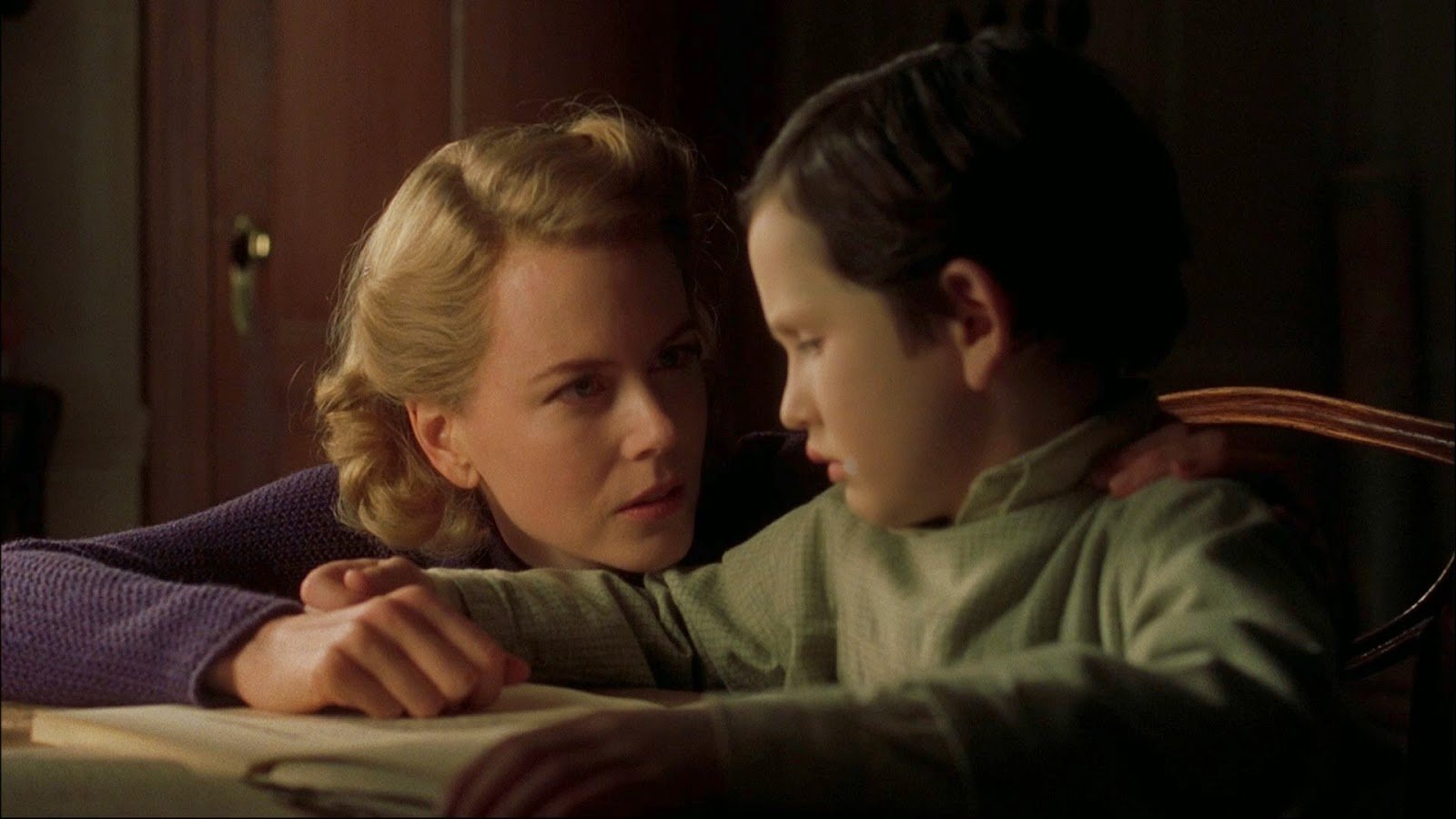
Grace lives at the house with her two children, Anne (Alakina Mann) and Nicholas (James Bentley). Her husband, Charles (Christopher Ecclestone), went to join the war a year and a half ago, and they are awaiting his uncertain return. Their house is devoid of electricity or any modern devices that can create noise, like a telephone or radio, as it gives Grace a migraine.
One rule of the house is that whenever one door is to be opened, the previous one needs to be closed. The servants are to keep the noise down as much as possible. The most important rule revolves around how people are to interact with Anne and Nicholas. Whenever the children are in a room, all curtains are to be strictly drawn, and no light is to be let in. Only a lamp is to be used as the source of light. This is because Anne and Nicholas suffer from a photosensitive disease, which means they cannot be exposed to more than a limited and controlled amount of light lest their skin starts breaking into blisters and boils.
Also, Read – The 20 Best Spanish Thriller Movies of All Time
The three servants start working, and Grace discovers they’d previously worked in the same house. They had to leave the house because the village having gotten evacuated during a tuberculosis outbreak. Nevertheless, they are quite attached to the place and came despite there being no advertisement for help since they wanted to see if there was an opportunity for them to return to their beloved workplace and residence. Soon, the trio finds out that Grace leads a puritanical lifestyle which is forced onto the children, who are constantly made to study scriptures and punished severely for the smallest reasons.
The more rambunctious of the two, Anne, keep running into trouble as she doesn’t tolerate her mother’s irrational superstitions. Besides, the larger problem is that the house is haunted, with the sounds of people moving about being constant. Anne knows one of the ghosts, a young boy named Victor, who supposedly lives in the house with his family. Initially dismissive of this as Anne’s mischievous imagination at work, Grace is soon made to reckon with the fact that others in the house do not want them there. On top of that, the servants have ulterior motives that aren’t quite made clear.
Why does Charles leave?
As we will find out eventually that all the characters of the film are actually dead, it is important to note that the ghosts in the film are bound by space. Grace and her children are all limited to the confines of the house, where they all died. Also, Bertha, Edmund, and Lydia must’ve died on the premises for their ghosts to continue existing within its boundaries. The characters never leave the place, and the fog makes the world outside of it seem mysterious and dangerous. So when Grace tries to leave the house to get a hold of Father Legrand to exorcise the place, the ghost of Charles appears as a way of not letting her pass beyond the limits of the house.
He died too, but in the war and not within the premises of his estate. It’s alien territory for him as a ghost. At the same time, because it’s his house, he could return to it temporarily but not stay forever. And to stop Grace from leaving her space is a good enough reason for Charles to return. It gives him a purpose, the completion of which means he can then leave. Charles appears to be a shell-shocked man with no story from his time at war to tell. His quiet and reserved demeanor is a clue to the bafflement he feels, removed from his own territory as a ghost which happens to be on the war front.
What is the book of the dead?
While rummaging through the junk room, Grace discovers a strange album where the subjects of each photograph seem to be asleep. As Bertha tells her, they’re pictures of the dead. In the nineteenth century, when photography had become an economically accessible medium, a number of people took photographs of their loved ones after they died. According to Bertha, this was done with the belief that the dead person’s soul would live on through the permanence of the photograph.
Also, Read – 10 Great Foreign Horror Movies You Can Watch Right Now
The Others (2002) Ending Explained
How did they all die?
Bertha, Edmund, and Lydia were servants working at the estate back in the nineteenth century. During a tuberculosis outbreak in the winter of 1891, all three of them died. The house was evacuated, and the three started to live there as guardians of the place. They’re not malevolent spirits. In fact, they wish for the dead and the living to find a way to live with each other peacefully.
While living in the house, having moved in decades after it was emptied, Grace went mad, possibly from loneliness or because of something to do with the Germans who had invaded and occupied the island, which isn’t explicated. She smothered Anne and Nicholas with a pillow and, on realizing what she’d done, shot herself in the head in despair. The story of the servants having suddenly disappeared is probably because they feared their mistress’s deeds in her fit of madness and wanted to escape the consequences of having witnessed her actions.
Who are the Others?
The others who seem to haunt the place are actually human beings, a family of three who is living in the house. For Grace and the children, these people are akin to ghosts, as the children are unaware of the fact that they’re dead. On the other hand, Grace had suppressed the traumatic memory of what she had done, and that night became one in which she had a fit of rage and beat the children up.
Victor, the child in the family of the living who are staying in the house, is haunted by his interactions with Anne; for them, all the characters in the film are ghosts. They bring an old woman, a spiritualist, who keeps trying to make contact with Grace and the children, and that’s why Anne attests to having seen her more than the other members of the family, who would be trying to avoid running into them.
At the end of the film, the two worlds can communicate without any obstacles because they’re holding a seance. The sight of the séance brings back Grace’s memory of what she’d done, and the children are, in the process, informed of their state. The séance gives conclusive proof to the family residing at the house that it’s haunted, and so they decide to leave as the property is put up for sale again.
With the residents of the place now gone, Grace reminds Anne and Nicholas that no matter what happens, that house is theirs forever. Bertha informs them that people will keep coming and they will be able to make contact with some, but not all. With this in mind, the six spirits continue to live in that house.
Mist and Darkness
Grace believes that light is lethal for their children, a belief she ingrains into their heads as well. This means they’re never to be found in any room with a ray more than the amount of light a lamp exudes. This habit of keeping them in the dark is symbolic of her keeping these kids ignorant of their real condition, which is that they’re dead. The fact that nothing happens to Anne and Nicholas when they are exposed to sunlight after the inhabitants of the house remove the curtains one morning demonstrates that this condition is entirely fictitious. Grace being able to move around in daylight shows that she has the knowledge of what really happened to her and her children, and it’s something she has unconsciously accepted and subsequently repressed.
Recommended: Nekromantik (1988) Movie Ending Explained And Themes Analysed: What Does The Rabbit Symbolize In The Film?
While the rooms of the house are drenched in darkness, the house itself is shrouded in fog at all times. This gives the setting an air of mystery and foreboding and again becomes symbolic of the house’s isolation from the rest of the world and the unclear suspicion that Grace and her children live with. On the morning when all the curtains disappear, something Victor’s family must’ve done as they’d previously discussed, Bertha and Edmund do not seem fazed by the danger it puts the children in.
At the time, combined with Bertha’s suspicious behavior prior to it, they intended to harm the children. But as we eventually discover, they arrive at the house to let Grace, Anne, and Nicholas know that they’re now in the world of the dead. Bertha’s suggestion to Grace that the latter should check whether her children’s condition has improved over time is a veiled hint at her telling them what transpired on the night ‘Mommy went mad.’ The mist and darkness show us how ignorance and repression had infested Grace’s household, causing a stagnancy that made Grace delirious and disturbing the children.
Recommended: 10 Classic Horror Movies You Can Watch on HBO Max Right Now

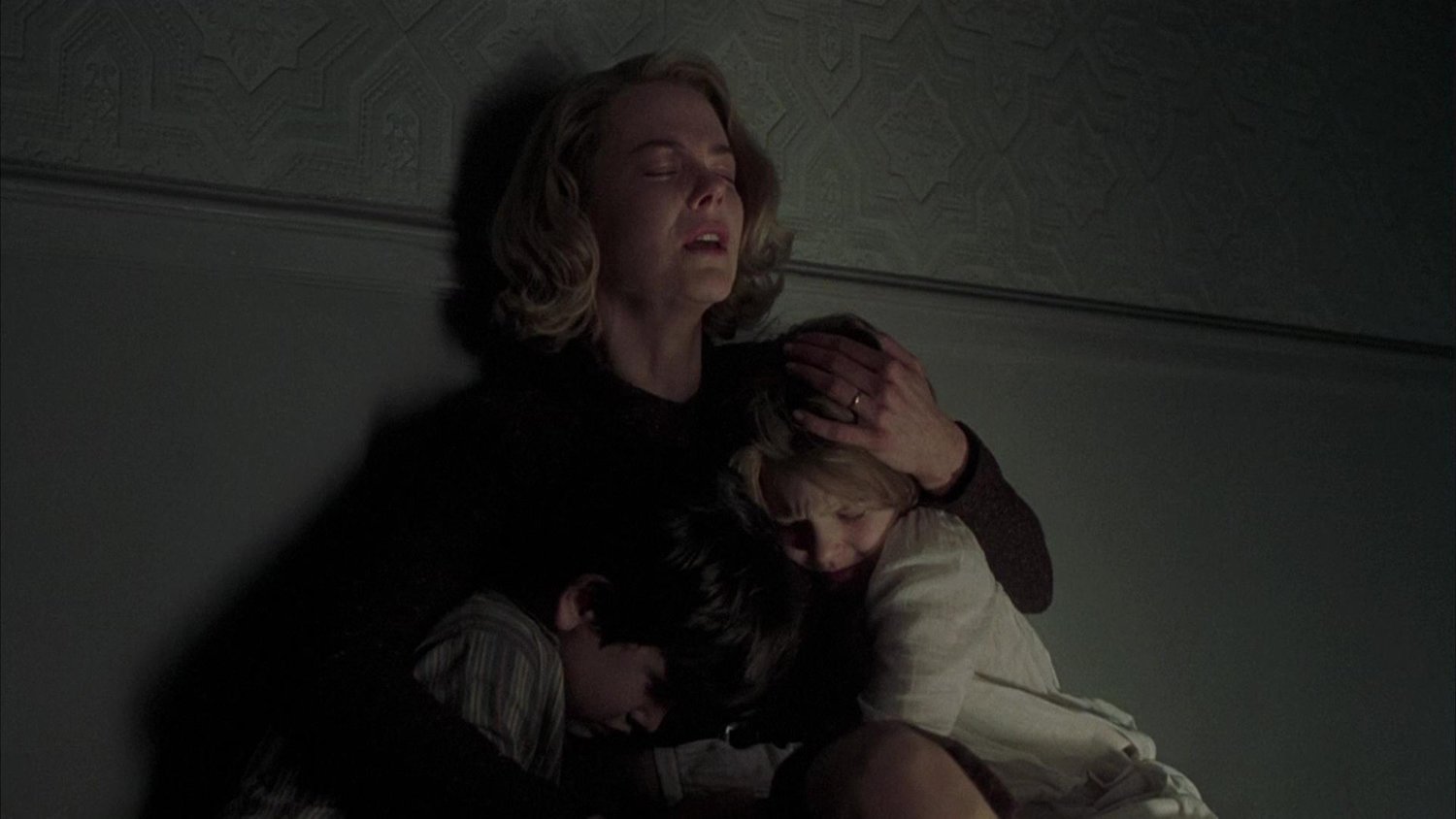
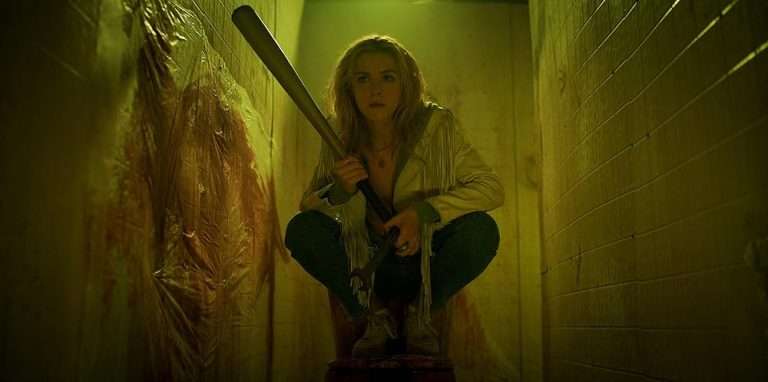
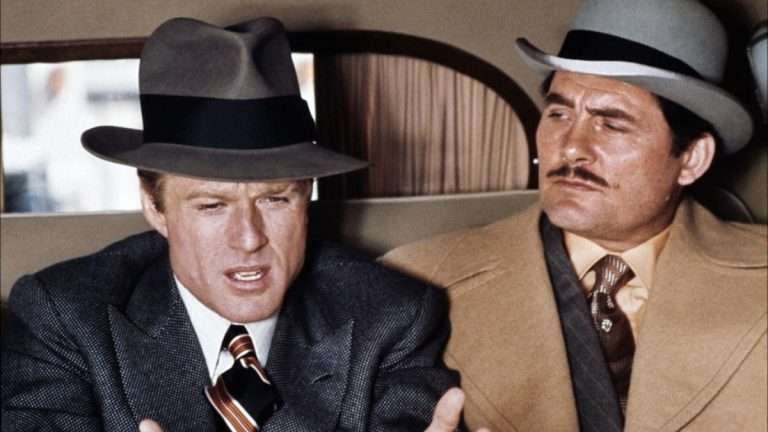
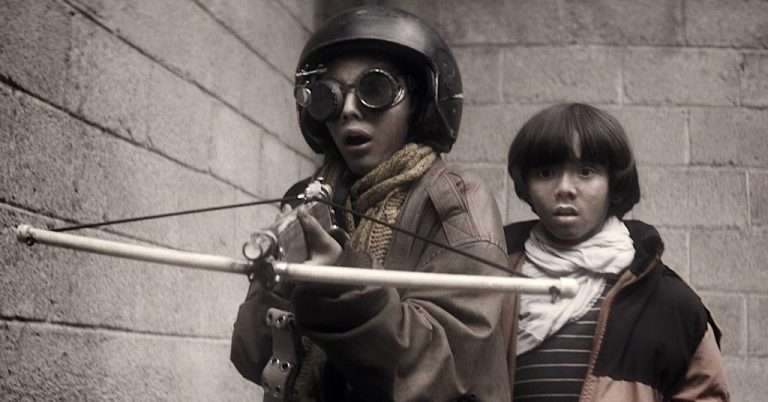
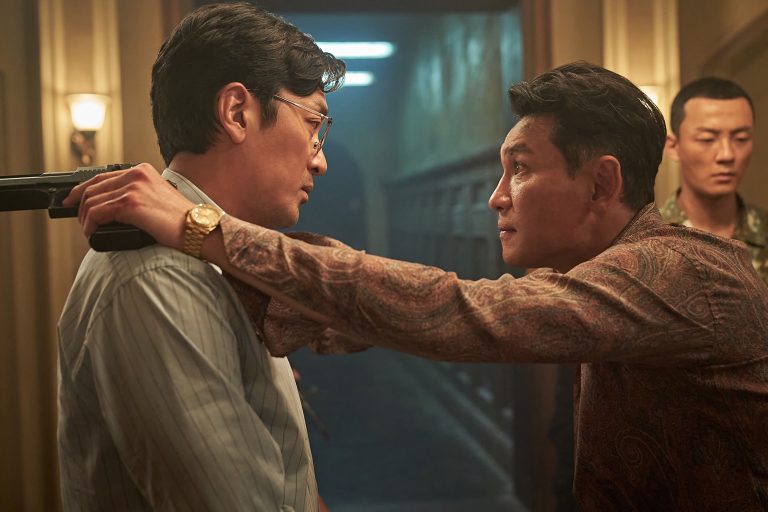
![Paddington [2014] Review: A Sweet-Natured & Warm-Hearted Delight For All](https://79468c92.delivery.rocketcdn.me/wp-content/uploads/2018/12/paddington-screenshot-1-768x432.jpg)
